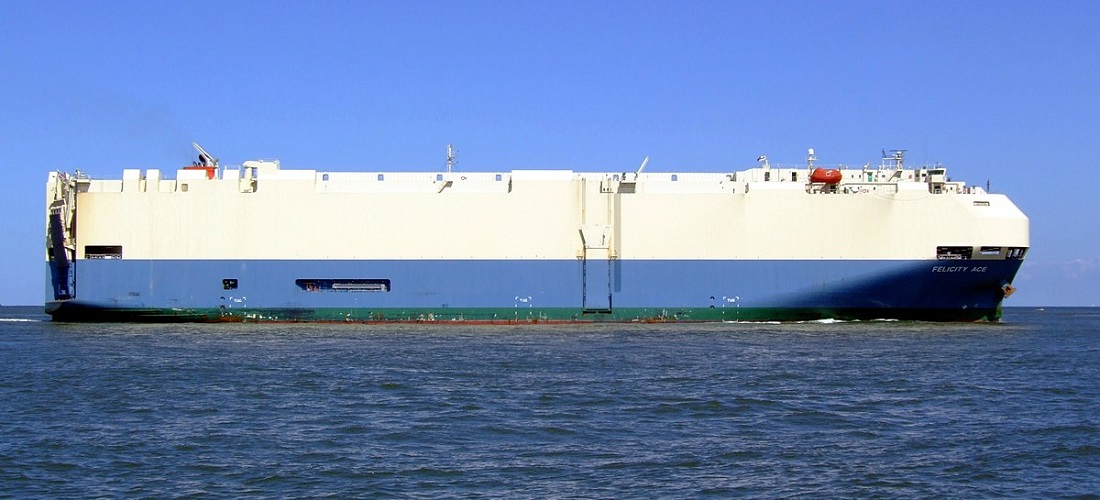
Car carrier firms start to turn away used EVs in wake of spate of serious fires
Apr, 05, 2022 Posted by Gabriel MalheirosWeek 202214
Shipping operators are turning away transporting risky used electric vehicles (EVs) in greater numbers. Japan’s Mitsui OSK Lines (MOL) is the latest name to go on the record saying it is pulling back from transporting secondhand battery-powered cars.
MOL, which operates one of the world’s largest car carrier fleets, suffered this year’s largest shipping casualty to date in dollar terms when its 6,400 ceu vessel, Felicity Ace, caught fire and eventually sank off the Azores five weeks ago with losses, according to law firm Vinson & Elkins, in the region of $500m. The casualty was the fourth big car carrier blaze involving EVs since 2019.
While not every fire has necessarily started via an EV, once they are caught up in any blaze they act as a serious accelerant. Lithium-ion batteries which catch fire can reach temperatures of more than 2,700 degrees celsius.
A spokesman for MOL told Splash today that its new policy only applies to used battery-powered EVs and not to hybrid vehicles.
MOL said it conducts safety checks on conventional petrol and diesel cars before boarding by ensuring they can move under their own power and by visually inspecting them for leaks. Such procedures are hard to carry out with used EVs, the spokesperson said.
Last week South Korea’s Hyundai Glovis detailed a new fire response system it has been working on with class society Korean Register which includes more sprinklers and EVs covered in specially produced fire-resistant blankets while in transit.
Aware of the rising risks from EV fires, the International Maritime Organization (IMO) issued a paper in June last year in which it said that fire fighting equipment and measures in existing ships carrying cars needed to be reassessed.
London-based law firm Watson Farley & Williams said in a recent report that although it is not clear whether electric vehicles are more likely than conventional vehicles to catch fire, it is common ground that the consequences are potentially more disastrous and more difficult to handle.
“If crews are not aware that fighting an EV fire requires a different technique to that employed in fighting a conventional fire onboard, it is easy to see how an incident could lead to a total loss. The evidence indicates that current suppression and drenching systems will not be sufficient for this new risk. New systems will need to be devised and incorporated into ship design,” stated the law firm.
Source: Splash247
To read the full original article, please go to:
-
Meat
Apr, 07, 2021
0
Brazil asks Russia to lift slaughterhouse restrictions
-
Uncategorized
Jul, 31, 2019
0
Government publishes regulatory framework for pesticides
-
Vessel Calls
Aug, 26, 2020
0
Container vessel calls at Brazilian ports fell 3.08 % YoY in the last four weeks
-
Meat
Mar, 02, 2023
0
Mad cow: Russia halts beef imports from Para


